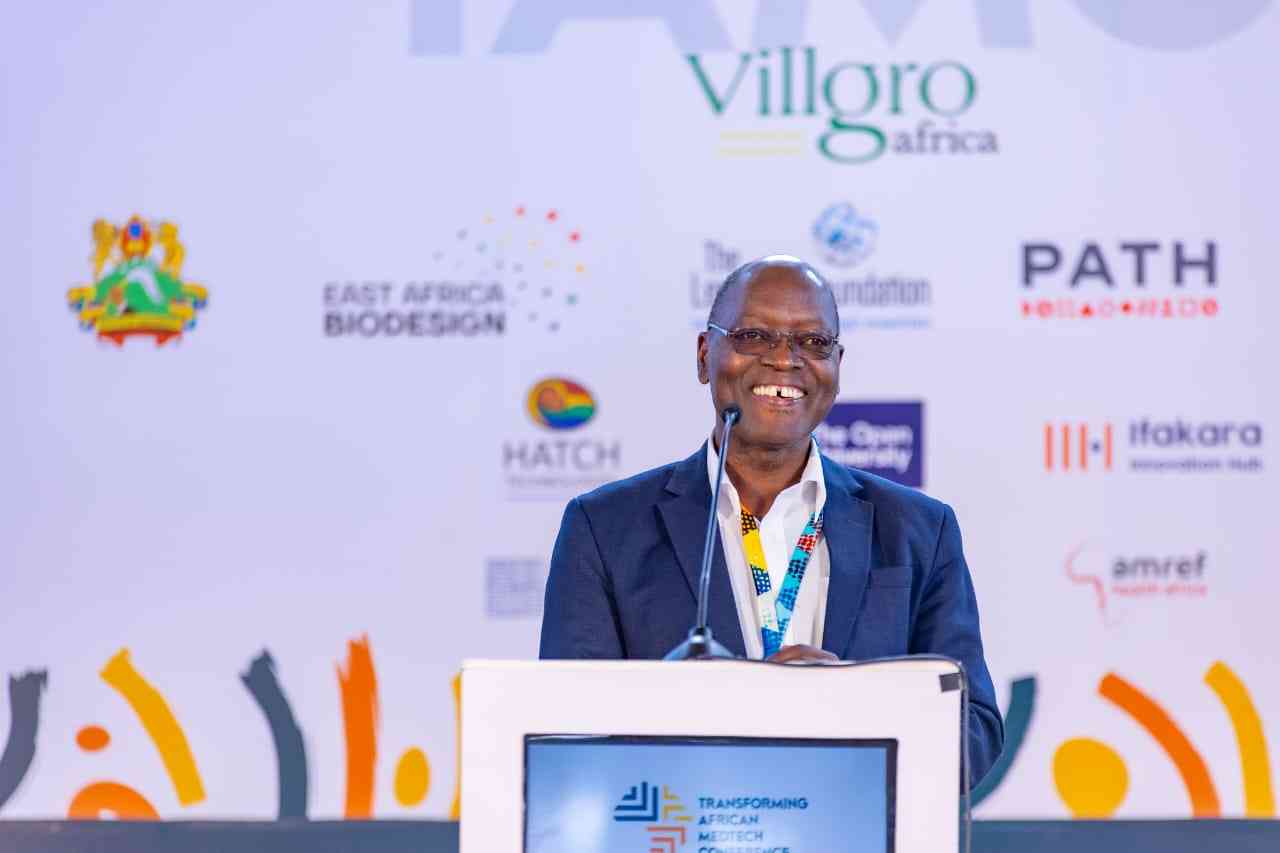
Kenya has positioned itself as a continental hub for digital health and medical innovations, as stakeholders intensify calls for homegrown solutions to tackle Africa’s pressing healthcare challenges.
Speaking at the Transforming Africa MedTech Conference in Nairobi, Dr. Ayub Manya, Director of Health Financing, Digital Health Policy and Research at the Ministry of Health, said Kenya has built a strong reputation in digital health through innovations such as digitised health records and telemedicine platforms.
“Every day, there are innovations, not just for the sake of change but to solve real healthcare challenges. From telemedicine to artificial intelligence in diagnostics, the future holds great promise. But we must ensure that these innovations are nurtured by investing in technologies, training people, and supporting sustainability to ensure good tools are actually used,” Dr. Manya said.
He added that more awareness is needed to help patients and providers adapt to digital health tools, such as telemedicine, while also warning about risks related to data privacy, cybersecurity, and potential misuse.
Wilfred Njagi, co-founder and CEO of Villgro Africa, underscored the importance of local manufacturing, recalling Africa’s struggles during the COVID-19 pandemic.
“During COVID-19, we were last in the waiting list for ventilators, PPEs, and vaccines. That is why local solutions are critical. If we manufacture devices here, we can also service them locally and ensure hospitals don’t become graveyards of broken imported machines,” he said.
Njagi noted that local production would also help bridge funding gaps, especially as global donor funding declines by 2030.
Kenyan startups at the conference showcased innovations tailored to local needs.
- New AI CT scanner to cut cancer, kidney care costs under SHA deal
- Duale promises policy shift on hidden conditions
- KNH transforms lives through specialised surgical camp
- Mental Health: Why a 12-second scream could save billions in Kenya's healthcare costs
Keep Reading
Jeremiah Goodluck, founder and CEO of Gwendolyn Pharmaceutical, unveiled Clinic at Hand, a portable point-of-care device designed to bring diagnostics into patients’ homes.
“This is a homegrown solution, made by Kenyans for Kenyans, to ensure everyone has access to quality healthcare,” he said.
Dr. Alice Muhuhu, founder and CEO of Aurora Health Systems, introduced a wireless electrocardiogram (ECG) monitor aimed at addressing Kenya’s shortage of cardiologists. With only 30 to 40 cardiologists actively practising in the country, compared to an average of 800 in Europe, the device allows patients to be monitored remotely in real time.
“Cardiovascular disease is set to overtake infectious diseases as Africa’s leading cause of death in the next five years,” Dr. Muhuhu said.
“Our device enables doctors to track patients even in rural areas, expanding access to specialist care.”
Aurora has completed pilot testing with the Kenya Cardiac Society and is working with U.S. tech giant Qualcomm to integrate artificial intelligence into the device, with a nationwide launch expected within 12 months.
Conference delegates also flagged fragmented regulation as a major obstacle for African innovators.
Njagi further called for a harmonised approval system across the continent.
“It makes no sense for a device approved in Kenya to start afresh in Uganda. We need a single market approach so innovations can scale faster across all 54 countries,” he said.
Kenya is currently ranked among Africa’s top four innovation hotspots, alongside Nigeria, Egypt, and South Africa.
But innovators and officials stressed that progress will depend on governments moving beyond rhetoric to actively finance and adopt new solutions.
“Innovation without implementation is wasted,” Dr. Manya cautioned.
“We must ensure governments take up new technologies, invest in them, and regulate them responsibly, so that Africa’s healthcare systems can leap forward.”
 The Standard Group Plc is a multi-media organization with investments in media
platforms spanning newspaper print
operations, television, radio broadcasting, digital and online services. The
Standard Group is recognized as a
leading multi-media house in Kenya with a key influence in matters of national
and international interest.
The Standard Group Plc is a multi-media organization with investments in media
platforms spanning newspaper print
operations, television, radio broadcasting, digital and online services. The
Standard Group is recognized as a
leading multi-media house in Kenya with a key influence in matters of national
and international interest.











